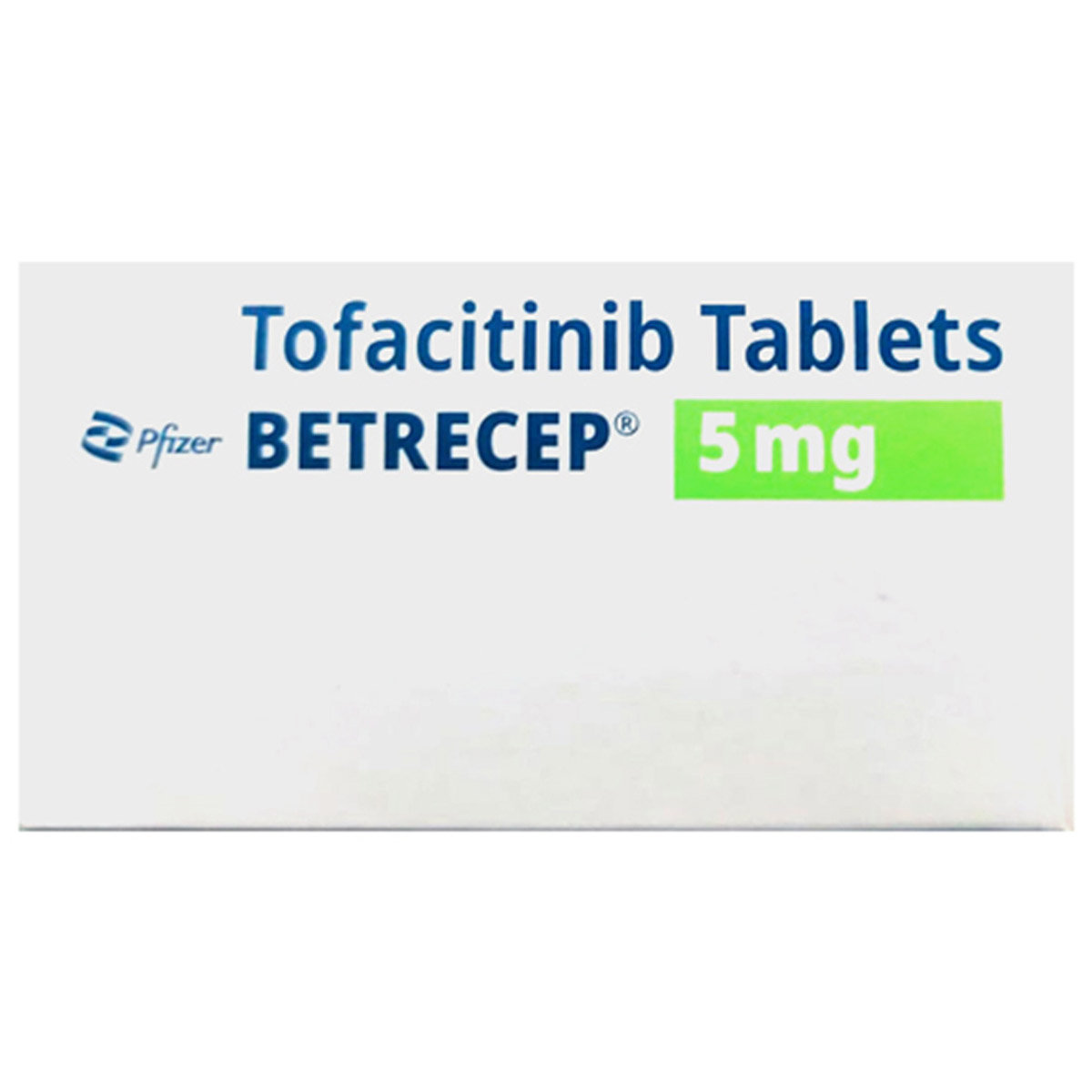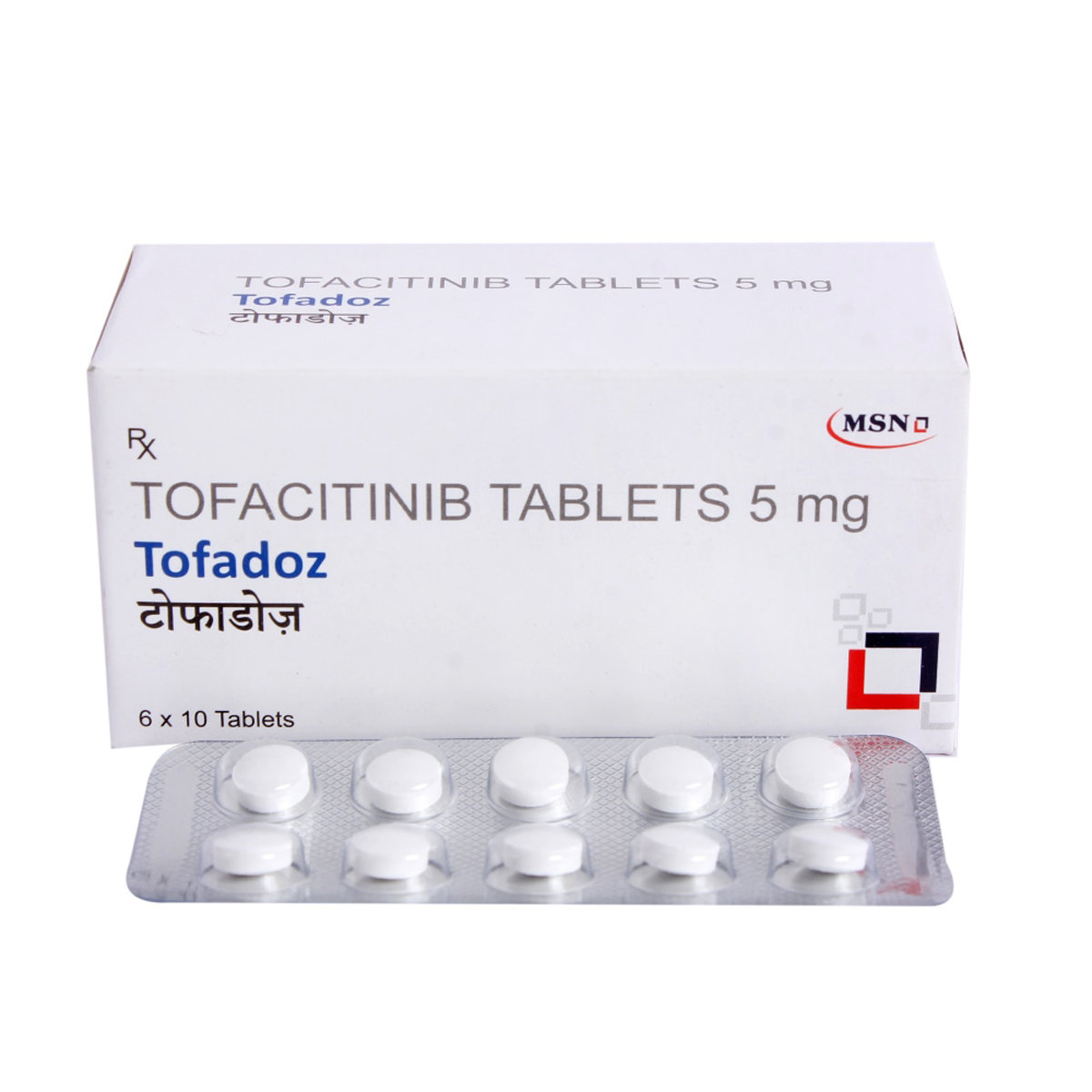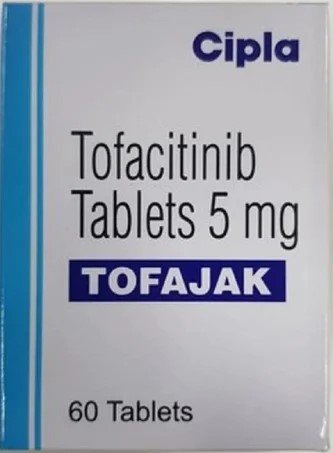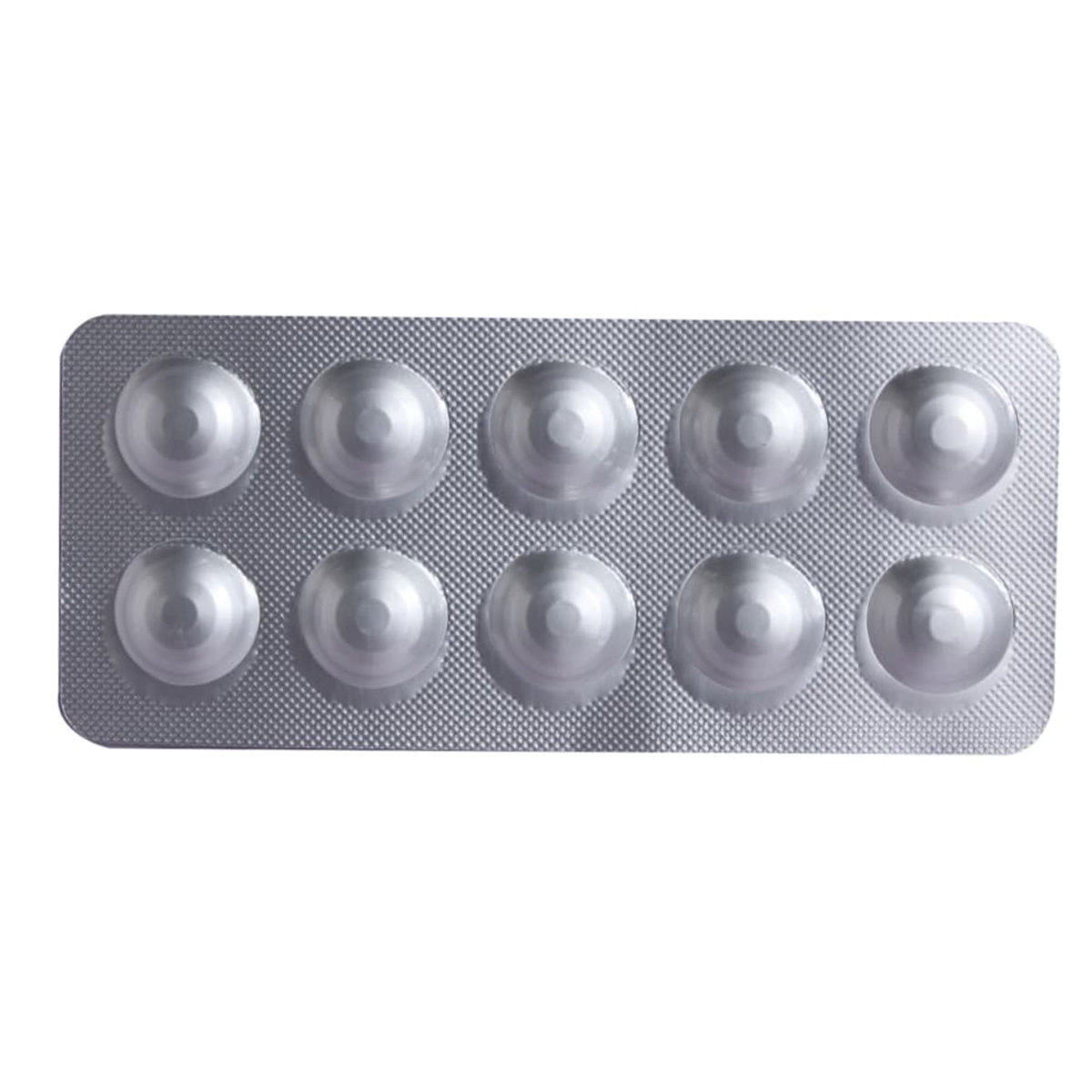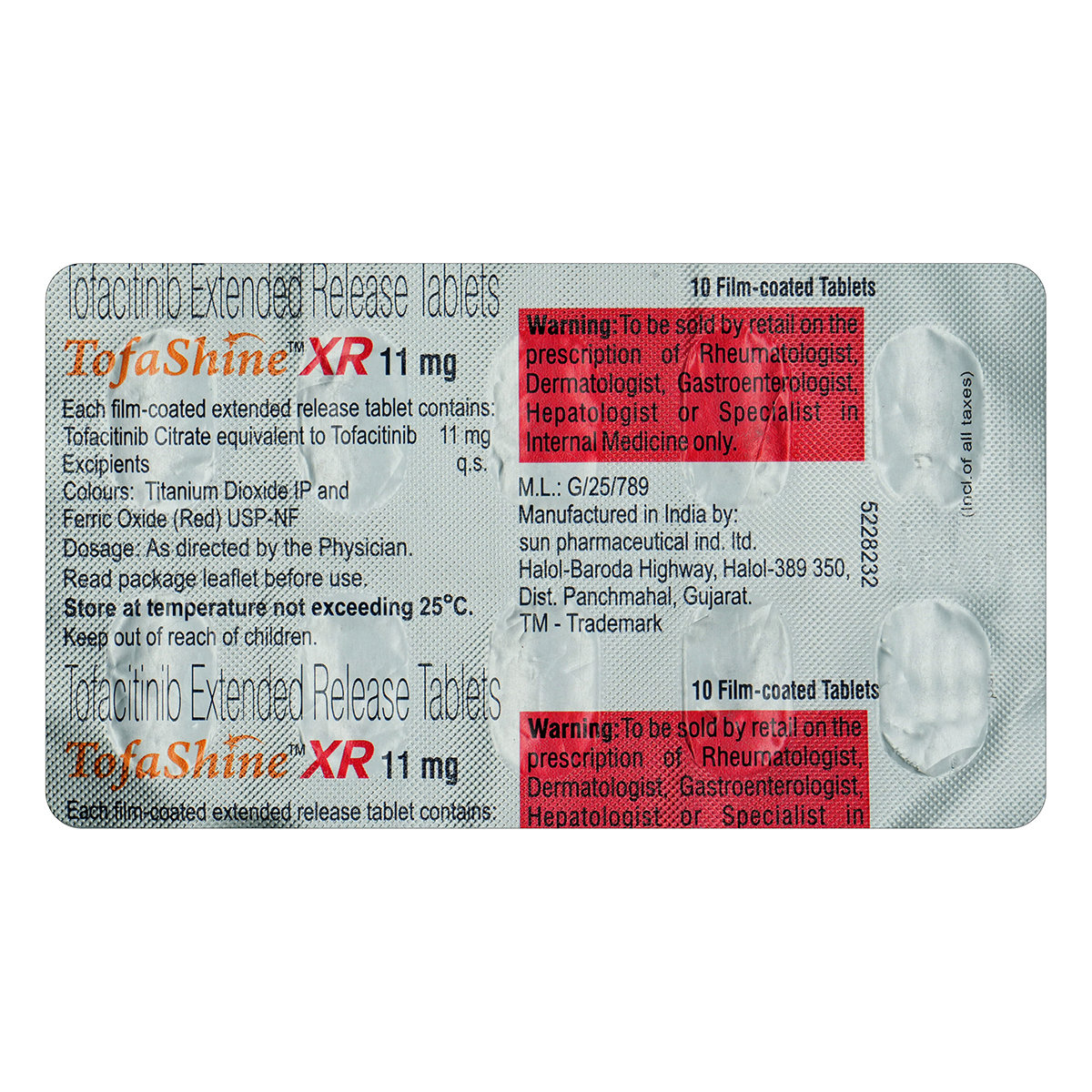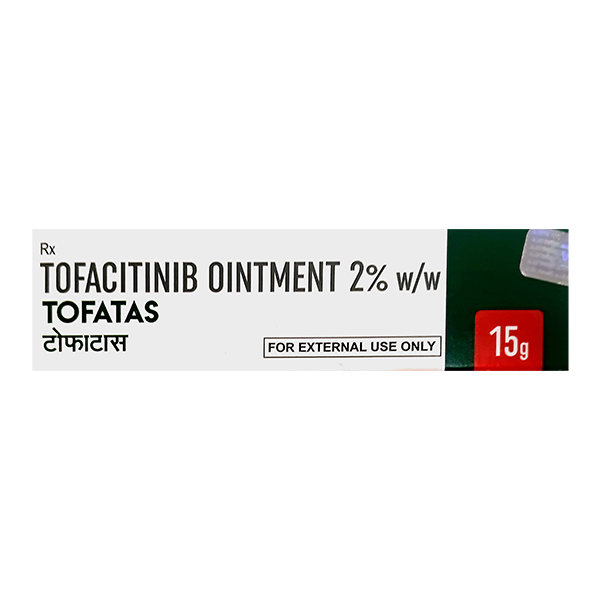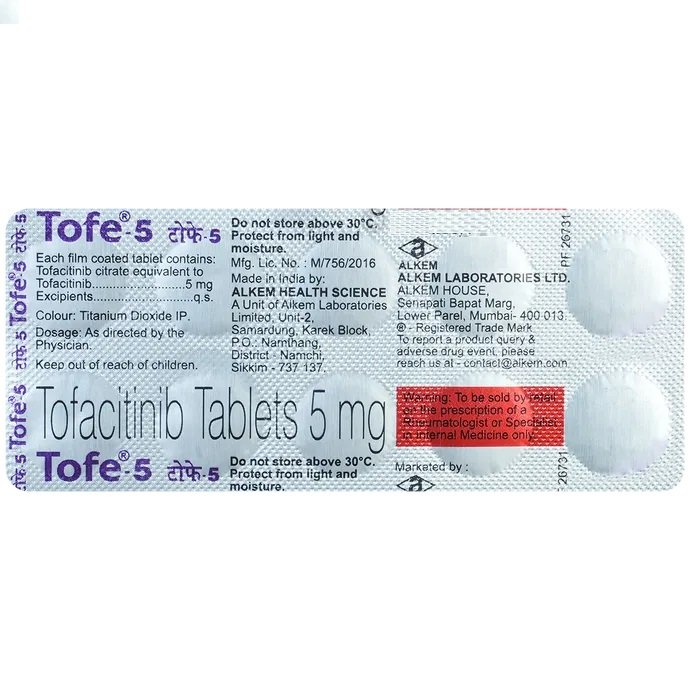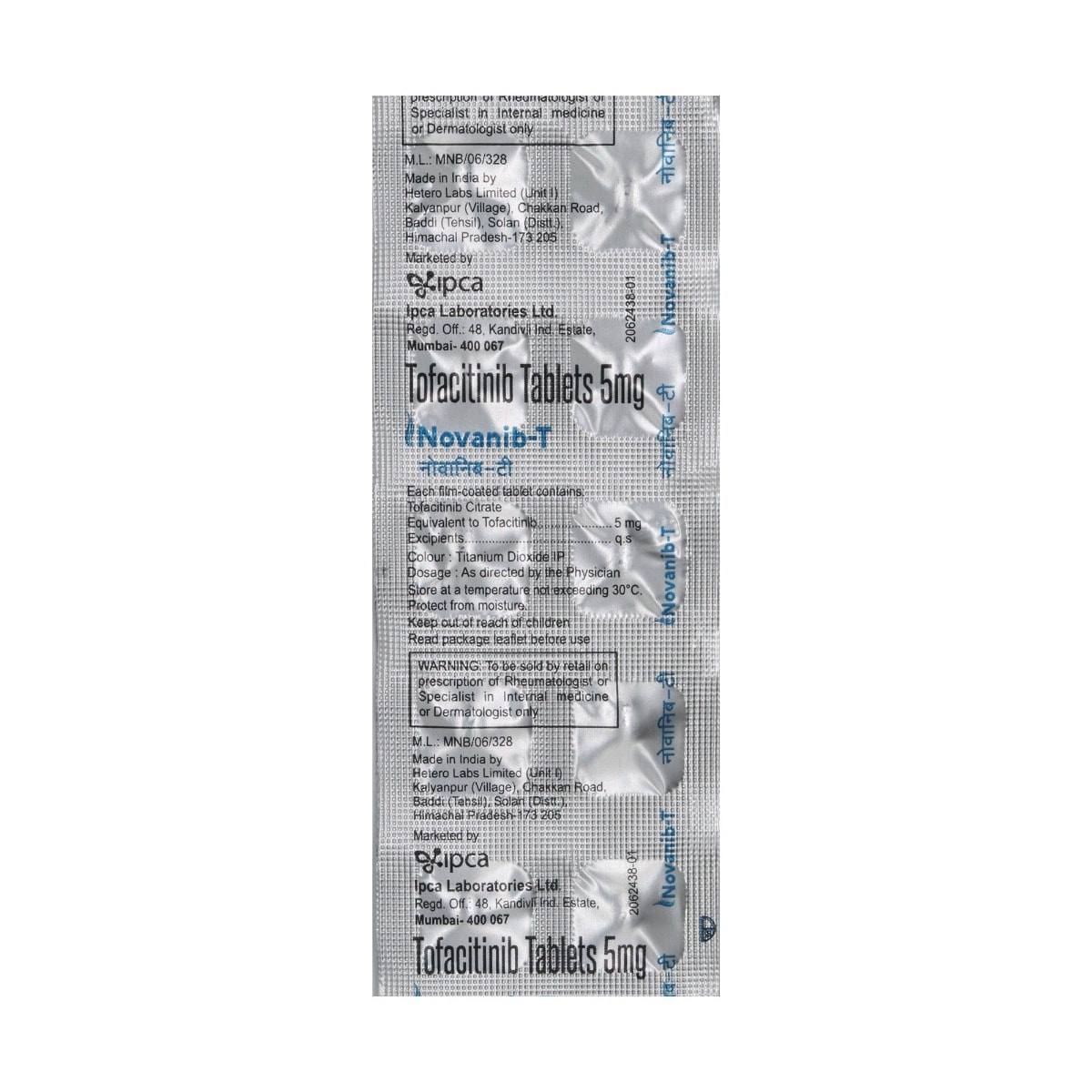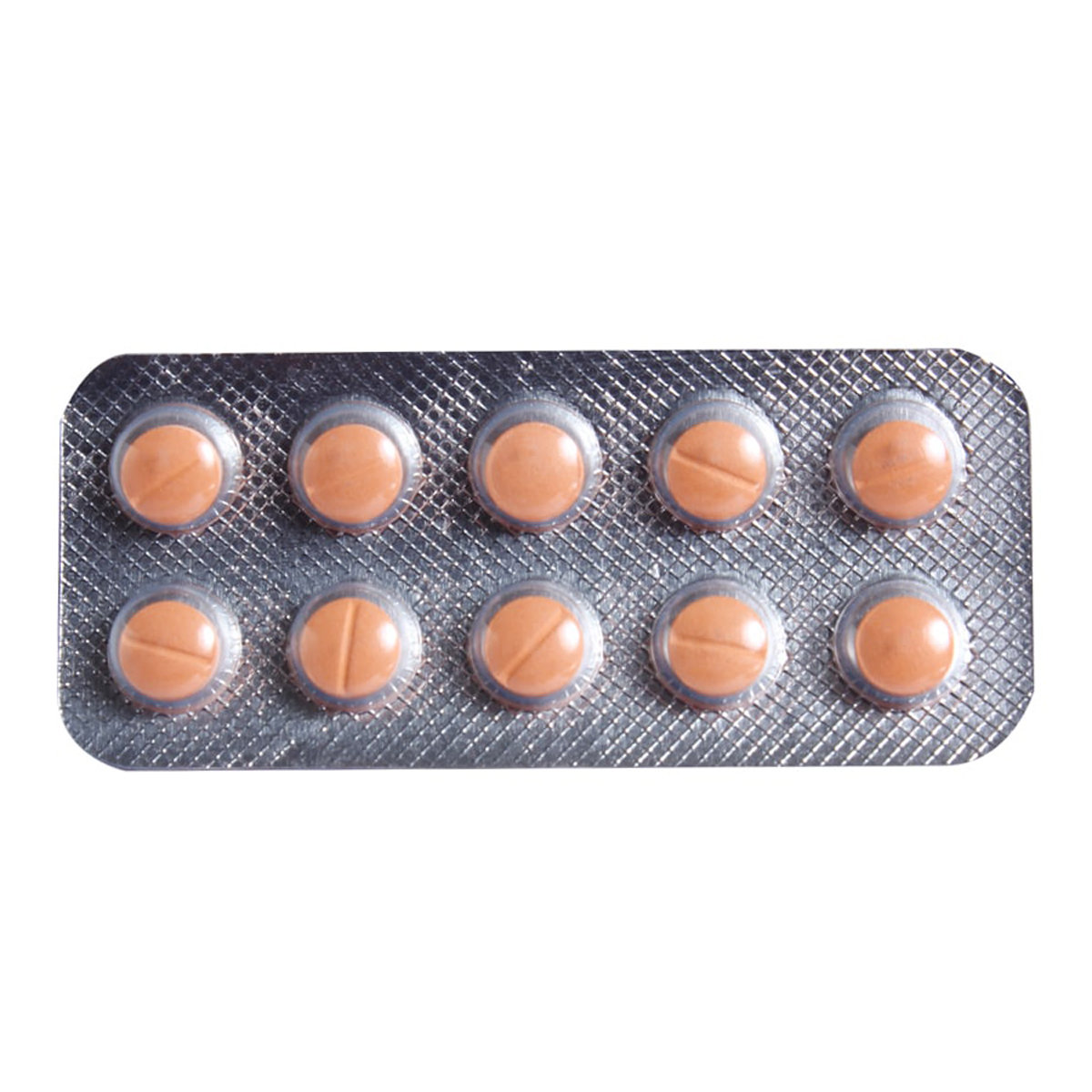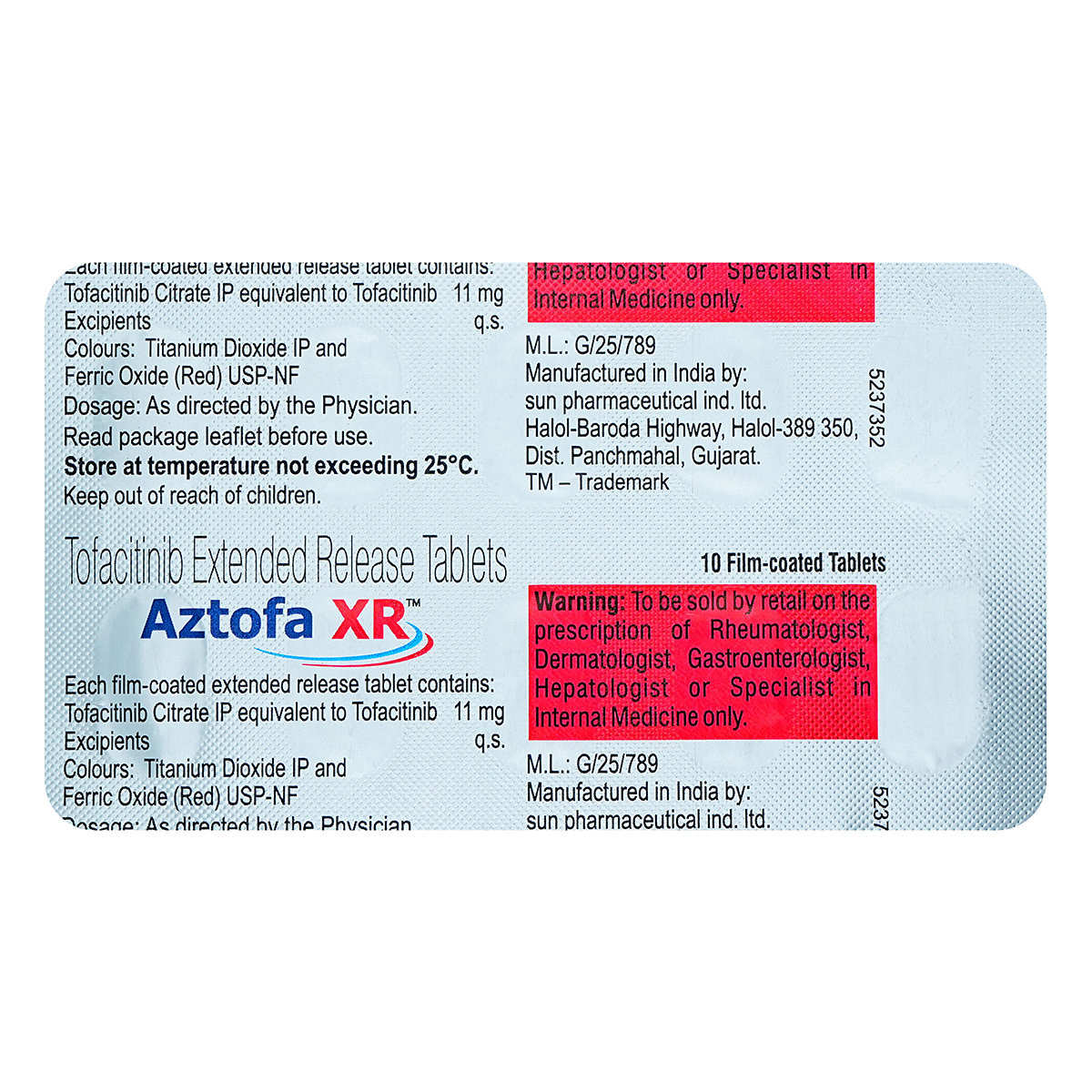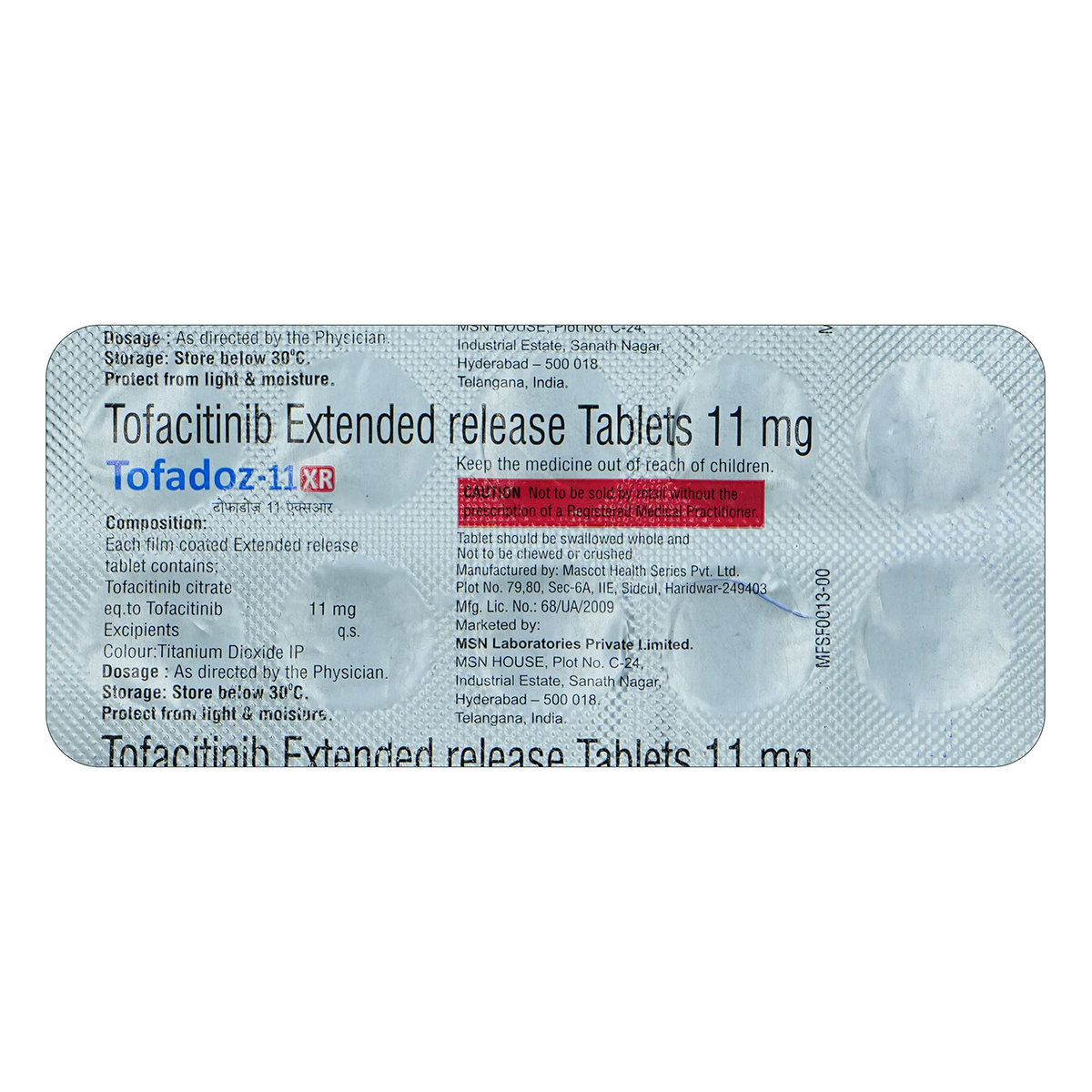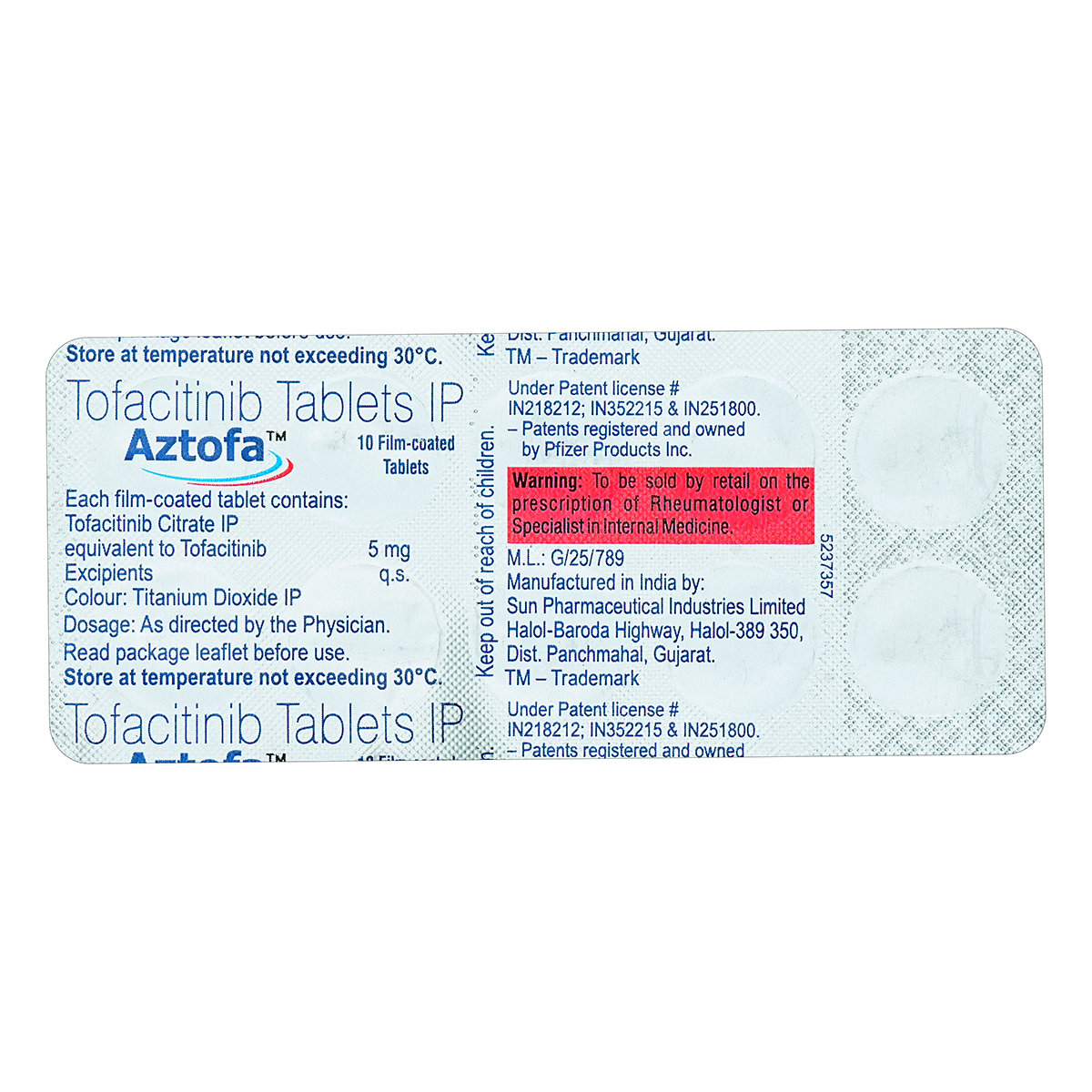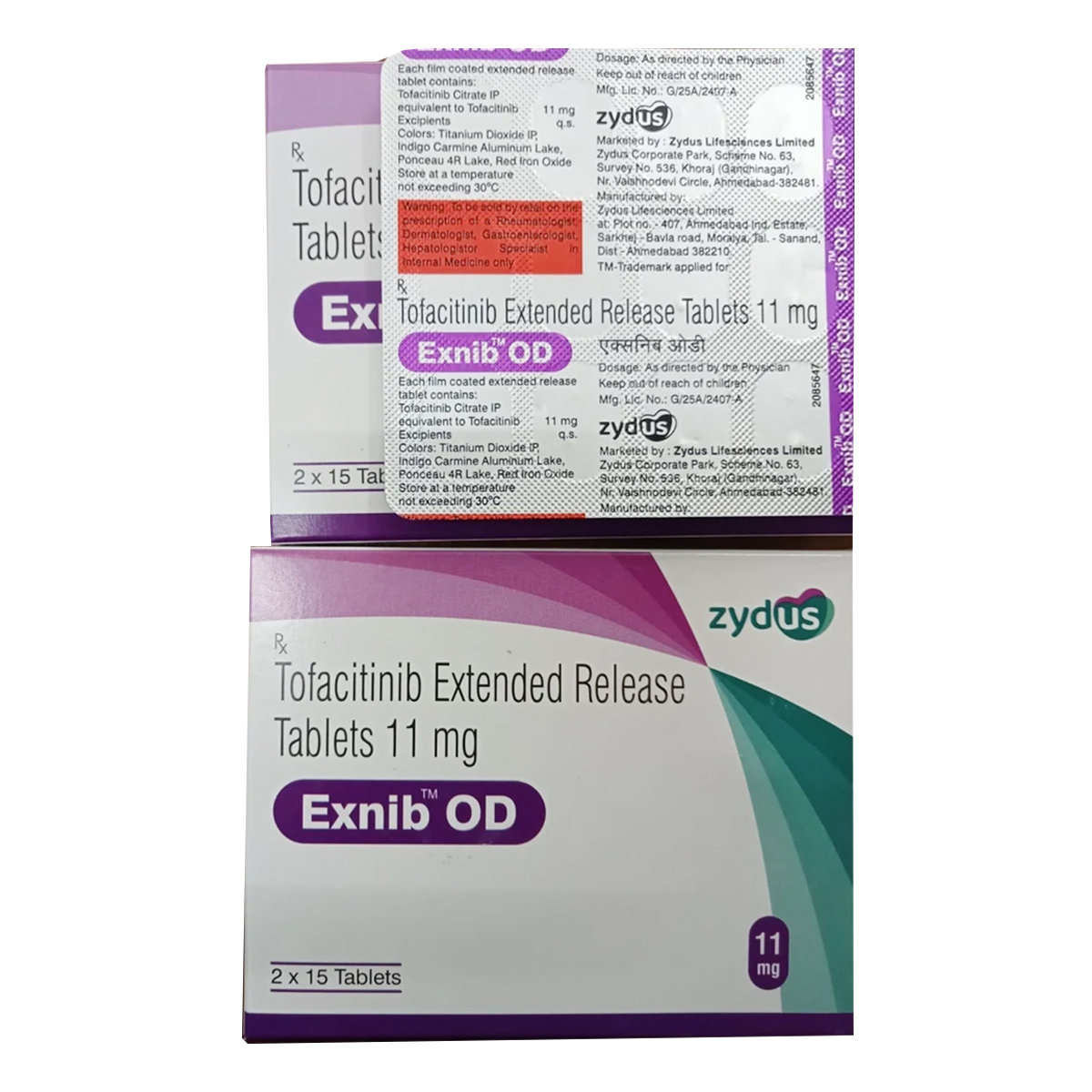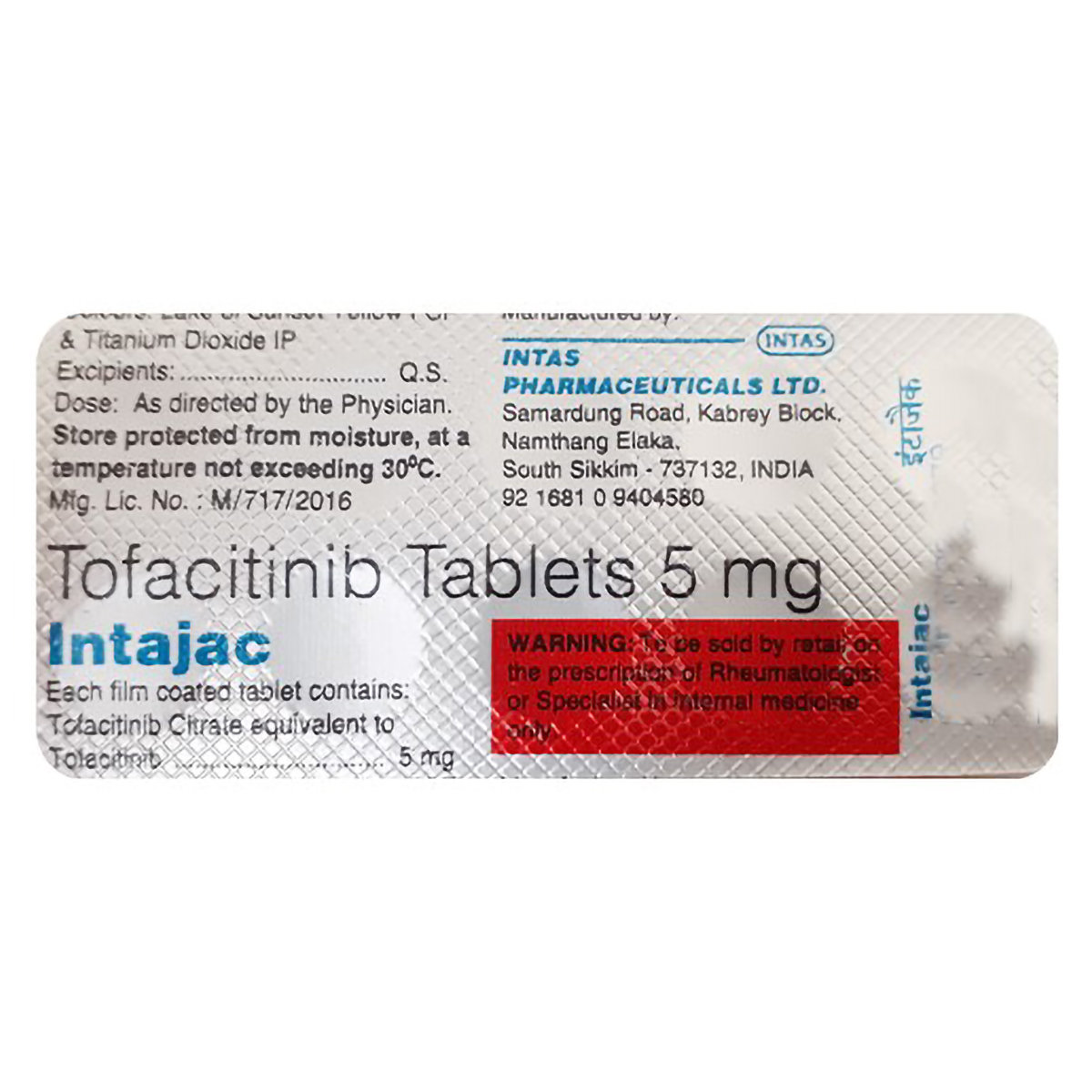Tofacitinib
About Tofacitinib
Tofacitinib is used to treat rheumatoid arthritis (an autoimmune disease which leads to joint pain and damage), psoriatic arthritis (an inflammatory condition of the joints), and ulcerative colitis (an inflammatory disease of the large intestine).
Tofacitinib contains Tofacitinib, which works by blocking the Janus kinase enzyme, thereby lowering inflammation and symptoms associated with rheumatoid and psoriatic arthritis.
Not everyone who is taking Tofacitinib will get these side effects. In some cases, you may experience common side effects such as diarrhoea, headache, upper respiratory tract infection, cold, nausea, and vomiting. Most of these side effects do not require medical attention and will resolve gradually over time. However, you are advised to talk to your doctor if you experience these side effects persistently.
You can take Tofacitinib with or without food. It should be swallowed as a whole with a glass of water. Do not chew, bite, crush, or break it. Your doctor will advise you on how often you should take your tablets based on your medical condition. It is always important to complete your treatment course for better results.
Avoid taking Tofacitinib if you are allergic to it. Inform your doctor if you have an active infection, if you are taking immunosuppressants, medicines that affect the immune system or corticosteroids. Avoid taking Tofacitinib if you are pregnant or breastfeeding. Tofacitinib is not recommended for use in children below 18 years as safety and effectiveness have not been established.
Uses of Tofacitinib
Medicinal Benefits
- Tofacitinib belongs to a group of medicines called Janus kinase inhibitors used to treat rheumatoid arthritis, psoriatic arthritis, and ulcerative colitis.
- Tofacitinib is indicated for patients with moderate to severe rheumatic arthritis, and psoriatic arthritis who have had intolerance or inadequate response to methotrexate or DMARDs (Disease-Modifying Anti-Rheumatic Drugs).
- This medicine helps lower inflammation and symptoms associated with rheumatoid and psoriatic arthritis.
Directions for Use
- Tofacitinib can be taken with or without food.
- It is recommended to take Tofacitinib 1-2 times a day, depending on your medical condition, or as prescribed by your doctor.
- Swallow Tofacitinib as a whole with a glass of water.
- Do not crush, chew, or break it.
Storage
Side Effects of Tofacitinib
- Headache
- Diarrhoea
- Vomiting
- Nausea
- Cold
Medicines Containing this Salt
View AllDrug Warnings
- Do not take Tofacitinib if you are allergic to any of its components; if you have a severe infection, bloodstream infection, or if you have severe liver problems such as cirrhosis.
- Inform your doctor if you have an infection, symptoms of infection, a condition that increases chances of infection, are taking any medicines that affect the immune system; have or had a history of tuberculosis, chronic lung disease, liver problems, hepatitis B/C, cancer, inflammation/ulcers of the large intestine, or kidney problems; are planning to get vaccinated; or have heart problems, high cholesterol, high blood pressure, heart attack, diabetes, or blood clotting problems.
- If your white blood cell count or red blood cell count is low, avoid taking Tofacitinib.
- Inform your doctor if you notice painful blisters on the skin or if you experience breathing difficulties. Inform your doctor about your complete medical and medication history before starting treatment with Tofacitinib, which helps the physician decide the best treatment plan.
Drug Interactions
Drug-Drug Interactions: Tofacitinib may interact with antibiotic (rifampicin), anti-fungal (fluconazole, ketoconazole), immunosuppressant (azathioprine, mercaptopurine, cyclosporine, tacrolimus), corticosteroids (prednisone).
Drug-Food Interactions: No interactions found/established.
Drug-Disease Interactions: Inform your doctor if you have infections, bloodstream infection, severe liver problems, tuberculosis, blood clot problems, diabetes, high cholesterol, intestinal perforation, or gastrointestinal obstruction.
Drug-Drug Interactions Checker List:
Safety Advice

Alcohol
cautionIt is not known if alcohol interacts with Tofacitinib, so please consult a doctor.

Pregnancy
unsafeTofacitinib must not be taken during pregnancy. If you are a woman of child-bearing potential, use effective contraception during the treatment with Tofacitinib and for 4 weeks after discontinuation.

Breast Feeding
unsafeAvoid breastfeeding while taking Tofacitinib. Please consult a doctor if you have any concerns.

Driving
safeTofacitinib generally does not affect your ability to drive. However, drive or operate machinery only if you are alert.

Liver
cautionDose adjustment may be needed in patients with liver impairment. Please consult your doctor if you have a liver impairment or any concerns regarding this. Tofacitinib is not recommended for patients with severe liver problems.

Kidney
cautionDose adjustment may be needed in patients with kidney impairment. Please consult your doctor if you have kidney impairment or any concerns regarding this.

Children
unsafeTofacitinib is not recommended for children below 18 years as safety and effectiveness were not established.
Habit Forming
Diet & Lifestyle Advise
- Physical activity helps in strengthening muscles and relieves joint stiffness. Gentle activities like 20-30minutes of walking or swimming would be helpful.
- Performing yoga may also help in improving joint flexibility and pain management.
- Maintain a healthy weight by performing regular low-strain exercises and eating healthy food.
- Get adequate sleep, as resting the muscles can help in reducing inflammation and swelling.
- De-stress yourself by meditating, reading books, taking a warm bubble bath or listening to soothing music.
- Acupuncture, massage and physical therapy may also be helpful.
- Eat food rich in antioxidants such as berries, spinach, kidney beans, dark chocolate, etc.
- Foods containing flavonoids help in reducing inflammation. These include soy, berries, broccoli, grapes and green tea.
- Avoid smoking and alcohol consumption.
Special Advise
- Your doctor may advise you to get a blood test done before starting treatment with Tofacitinib, after 4-8weeks of treatment and then every three months to determine your blood cell count.
- Your doctor might advise regular tests to determine blood cholesterol levels and liver functioning.
Patients Concern
Disease/Condition Glossary
Rheumatoid arthritis: It is an auto-immune disease (the body's immune system attacks its tissue) that leads to joint pain and damage. Symptoms of rheumatoid arthritis include pain, swelling, stiffness, deformities and loss of joint function.
Psoriatic arthritis: It is a type of inflammatory arthritis which occurs in patients with psoriasis. It could also occur in patients without psoriasis, particularly in those who have relatives with psoriasis. It affects large joints in the lower extremities, distal joints of toes and fingers, back and pelvis. Symptoms include inflammation of joints, difficulty moving, swelling, patches of red, scaly skin and pain.
Ulcerative colitis: It is a type of chronic inflammatory bowel disease that causes inflammation of the lining of the large intestine (colon) and produces ulcers on the lining of the colon, which may cause bleeding and discharge of pus and mucus. The common symptoms include bloody stools, stomach pain, rectal pain, diarrhoea, fever, and weight loss. Additionally, it may cause other problems such as joint pain or swelling, mouth sores, skin problems, decreased appetite or nausea.
FAQs
Tofacitinib is used to treat rheumatoid arthritis, psoriatic arthritis, and ulcerative colitis.
Tofacitinib works by blocking Janus kinase enzyme, thereby lowers inflammation and symptoms associated with rheumatoid and psoriatic arthritis.
Hypertension/high blood pressure could be a side-effect of Tofacitinib. Consult your doctor before taking Tofacitinib if you have high blood pressure or if you are taking anti-hypertensive medicines.
Diarrhoea might be a side-effect of Tofacitinib. Eat non-spicy meals and drink plenty of fluids to prevent dehydration if you experience diarrhoea. If you find blood in stools (tarry stools) or if you experience severe diarrhoea, consult your doctor. Do not take anti-diarrheal medicine on your own.
Tofacitinib might impair fertility in females of reproductive potential. It is not known if the effect is reversible. Therefore, talk to a doctor before starting Tofacitinib if you are trying to become pregnant or if you have any concerns regarding this.
Tofacitinib affects the immune system and might lower the ability of the immune system to fight infections. Inform your doctor if you have an active infection, if you have a condition that increases the chance of having infections, if you are taking immunosuppressants, medicines that affect the immune system or corticosteroids.
Tofacitinib is not recommended for patients with severe liver impairment. Dose adjustment may be needed in patients with mild to moderate liver impairment. Please consult the doctor if you have liver problems.
Tofacitinib may increase the risk of cancer by changing the way the immune system works. Inform the doctor if you ever had any type of cancer.
Tofacitinib may begin working within 2-8 weeks after starting the treatment.
Tofacitinib should not be taken along with tocilizumab as it might increase the risk of infections. Before starting Tofacitinib, inform the doctor if you are taking tocilizumab.
Prior to starting Tofacitinib, active or latent tuberculosis test, CBC (complete blood count), LFT (liver function test), and lipid profile tests should be done.


